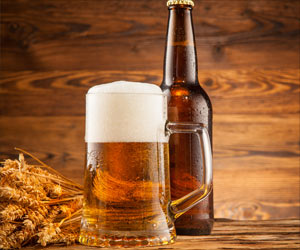New study highlights the key behavior-reward components to beverage choice and adds to our understanding of the link between genetics and beverage consumption.

TOP INSIGHT
Genes suggest beverage preferences hinge on psychoactive effects.
The paper will be published May 2 in Human Molecular Genetics.
The study highlights important behavior-reward components to beverage choice and adds to our understanding of the link between genetics and beverage consumption -- and the potential barriers to intervening in people's diets, Cornelis said.
Sugary beverages are linked to many diseases and health conditions. Alcohol intake is related to more than 200 diseases and accounts for about 6 percent of deaths globally.
Cornelis did find one variant in a gene, called FTO, linked to sugar-sweetened drinks. People who had a variant in the FTO gene -- the same variant previously related to lower risk of obesity -- surprisingly preferred sugar-sweetened beverages.
"To our knowledge, this is the first genome-wide association study of beverage consumption based on taste perspective," said Victor Zhong, the study's first author and postdoctoral fellow in preventive medicine at Northwestern. "It's also the most comprehensive genome-wide association study of beverage consumption to date."
Beverages were categorized into a bitter-tasting group and a sweet-tasting group. Bitter included coffee, tea, grapefruit juice, beer, red wine and liquor. Sweet included sugar-sweetened beverages, artificially sweetened beverages and non-grapefruit juices. This taste classification has been previously validated.
Beverage intake was collected using 24-hour dietary recalls or questionnaires. Scientists counted the number of servings of these bitter and sweet beverages consumed by about 336,000 individuals in the UK Biobank. Then they did a genome-wide association study of bitter beverage consumption and of sweet beverage consumption. Lastly, they looked to replicate their key findings in three U.S. cohorts.
Alan Kuang is also a Northwestern author on the paper.
Source-Eurekalert
 MEDINDIA
MEDINDIA




 Email
Email










